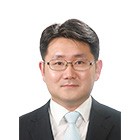Video
Publications
Issue Briefs
Publications | Issue Briefs
The 2025 Tianjin SCO Summit:
China’s Intentions and Limits
Lee Dong Gyu
2,7112025.10.13
Chinese President Xi Jinping used the SCO summit as an opportunity not only to stage an anti-American coalition by bringing together the leaders of countries such as Russia, Iran, and India, which are currently at odds with the United States, but also to demonstrate his intent to reshape global governance in China’s favor. This was evident in his first-ever announcement of the Global Governance Initiative (GGI), signaling China’s ambition to leverage its influence over international organizations to adjust global governance structures to its advantage.
Concerned about the growing U.S. influence in the region, China will continue to emphasize the principles of the UN Charter and multilateralism while condemning unilateral U.S. actions, in an effort to drive a wedge between South Korea and the United States. South Korea should recognize this and strengthen communication with its allies and partners to develop a response concept grounded in the liberal international order. It must also remain vigilant against the spread of Chinese-style discourse, making clear that adherence to the UN Charter and multilateralism is not exclusive to China.
This article is an English Summary of Asan Issue Brief (2025-32).
(‘2025년 상하이협력기구 정상회의에서 나타난 중국의 의도와 한계’)

Lee Dong Gyu
Senior Research Fellow, Director
Dr. LEE Dong-gyu is a senior research fellow at the Asan Institute for Policy Studies. Dr. Lee received his B.A. and M.A. from the Hankuk University of Foreign Studies, and Ph.D. in politics from Tsinghua University in China. His research focuses on Chinese politics and foreign policy, South Korea-China relations, and Northeast Asia security. His recent publications include “The Belt and Road Initiative after COVID-19: Implications of Expanding Health and Digital Silkroads,” “Is Political Reform of the Chinese Communist Party Going Back: Changes and Durability of Intra-democracy in the Xi Jinping Era,” “Xi Jingping Thought from the Perspective of the Chinese Communist Party’s Ideological Strategy,” “Development Factors and Specificity of Korea-China Relations in the Cold War Era: 1972-1992,” “A Study on the Sinicization of Marxism after Reform and Opening Up,” etc.
view more


